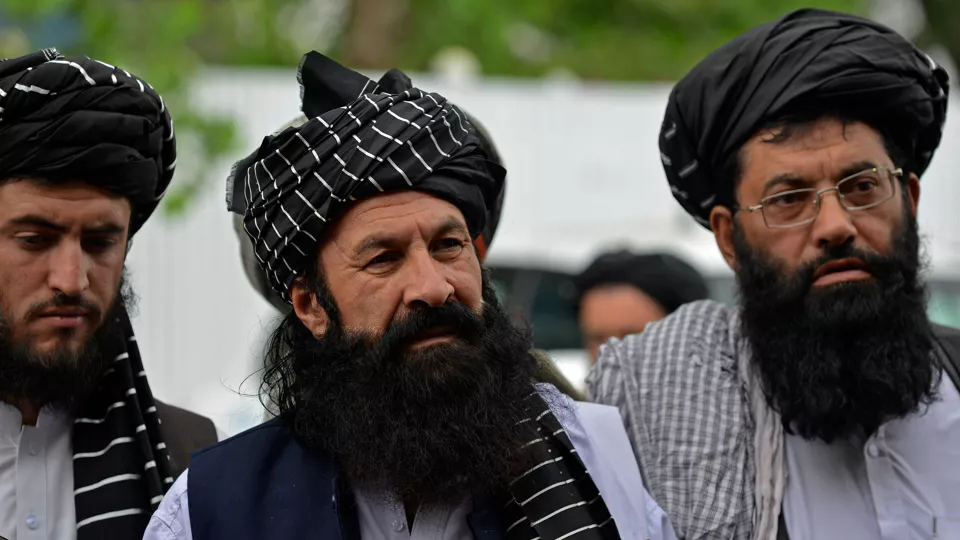What is India’s compulsion to get closer to the Taliban?
Why is India compelled to get closer to the Taliban? Understand the strategic necessity behind it.

- This week’s meeting between India’s Foreign Secretary and the Taliban has raised many eyebrows.
On Wednesday, Indian Foreign Secretary Vikram Misri met Taliban’s acting Foreign Minister Amir Khan Muttaqi in Dubai, marking a significant development. According to analysts, this meeting signals India’s intention to increase its influence with the Afghan leadership.
Over the past year, India has gradually built relations with the Taliban, but this meeting was the first high-level dialogue between the two sides.
India has invested more than $3 billion in aid and reconstruction efforts in Afghanistan over the last 20 years. The Indian Foreign Ministry’s statement included agreements on regional development, trade, and humanitarian cooperation, as well as plans to restart development projects, provide assistance in the health sector, and support refugees.
However, what was not said in the statement was made clear through the timing and agenda of the meeting pointing to changes in the region’s geopolitical realities.
- Tensions with Pakistan and New Appointments
This meeting took place at a time when India had condemned Pakistan’s airstrikes, which killed at least 46 people last month.
Additionally, last November, the Taliban appointed a caretaker consul to the Afghan consulate in Mumbai. At that time, India made no official comment, but the same month, India’s Joint Secretary for the Ministry of External Affairs visited Kabul.

- Is This a Strategic Shift?
Experts believe this event deepens the relationship between New Delhi and Kabul.
However, this move is not as significant a strategic shift as it may appear. Kabir Taneja from Observer Research Foundation remarked, “This is a natural evolution of India’s cautious and long-term approach toward the Taliban post-2021. Ignoring Afghanistan and its people is not an option.”
- India’s Hesitant Policy
Researchers believe India has always played a peripheral role in diplomatic dialogues. Studies show that countries like Qatar, China, and Turkey have been ahead of India in developing relations with the Taliban, while Pakistan’s influence remains in the top five.
The Afghan Visa Issue
Taneja suggests that the core of the Misri-Muttagi talks might have revolved around the possibility of resuming Afghan visas, especially for trade, health, and education.
- India’s Limited Strategy
India’s lack of understanding of Afghanistan’s social and political structure is weakening its policy. Experts argue that India has repeatedly made the same mistake — offering unconditional support to one side.
India must maintain dialogue with the Taliban, but it is equally important to balance relations with other stakeholders, as the situation in Afghanistan has always been unstable.
- India’s Changing Stance Toward the Taliban
This is the same India that once labeled the Taliban as a symbol of terrorism. The Taliban was depicted as the face of Islamic terrorism, with India running large-scale campaigns to defame Islam and its image. The Taliban was branded as anti-women, extremist, and was given degrading names such as “bearded mullahs.” But now the situation has changed, and India, once a strong adversary of the Taliban, is now trying to improve its relations with Afghanistan’s current ruling group.
Four years ago, India considered the Taliban as an enemy and a symbol of Islamic terrorism. The hardline Hindutva Chief Minister Yogi Adityanath once said, “The cure for the Taliban is the mace of Bajrang Bali.” However, this statement was ridiculed on social media, with people asking, “How can this clay statue of Bajrang Bali defeat the Taliban, who have defeated major superpowers?”
History shows that India endured 800 years of Mughal rule, but never heard such degrading political rhetoric or hate-filled religious statements.
- A Changing Strategy Toward the Taliban
Today, India finds itself compelled to establish relations with the Taliban. Experts believe this is akin to “licking the spit you once spat out.” India once portrayed the Taliban as the global face of terrorism, but changing geopolitical circumstances have forced India to engage in dialogue and cooperation with the Taliban.
- India’s Interests and Compulsions
Several economic and political reasons lie behind India’s shift. India has invested over $3 billion in Afghanistan, and maintaining its relationship with the Afghan people is crucial. But the question remains: Will India learn from its past and craft a stable and pragmatic policy?
India’s new approach to the Taliban is not only part of its strategy but also an effort to secure regional stability and commercial interests. Although this move contradicts India’s past stance, where the Taliban was always seen as a threat, it is clear that India’s shift in policy is driven by necessity.
The question is whether this shift will prove beneficial for India in the long term, or if it is merely a temporary step to meet immediate needs.



